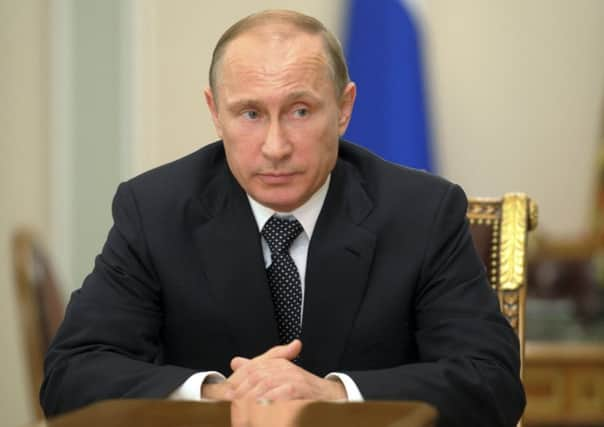Leaders: Russia cannot ignore its role in Ukraine disaster


Denials of involvement by those who claim to be fighting for freedom and their Russian government sponsors are vapid. Barack Obama was confident enough to say that all the evidence points to that conclusion.
The death toll – nearly 300 lives lost – is horrific. These were innocent people, going about their lives – conducting business, visiting friends and relations, going on holiday. Many of them were people who had dedicated their lives to fighting the suffering Aids can bring, going to a conference.
Advertisement
Hide AdAdvertisement
Hide AdThe separatist terrorists who pulled the trigger may be the immediate culprits, but Vladimir Putin and the Russian government are no less blameworthy. The Russian government has fomented the rhetoric which has led the eastern Ukrainian fighters to believe that their’s is a just cause. That backing has fortified the separatists, enabling them to feel confident enough to reject the Ukrainian government’s offer of a ceasefire. Russia is also supplying them with weaponry which may just include the missile which downed the plane.
It also fits with a long and ominous pattern. There is a confirmed history of Russian troops or special forces being on the ground and involved in the early insurrection. Reports suggesting those troops have been involved in training the separatists are also credible, and it is a fact that there are lots of Russian forces massed on Ukraine’s border. It is also probable that Russian intelligence operatives are on the ground and fomenting continued conflict.
There is a slight possibility that the missile was among some stolen by insurgents from the Ukrainian government. Even if that is the case, which seems unlikely, it is difficult to imagine that the conflict in Ukraine would have got this far without Russian support. There can be little doubt that the Russians have been training troops, and there is evidence that Buk rockets have been in the Donetsk region.
And if Russian involvement is proven, what next? There is no doubt that this attack takes the conflict to a new level. Nationals of ten countries, with the Dutch bearing the heaviest burden, have been killed. These countries now have an acute interest in knowing, not just what happened and who was responsible, but also what can be done to end this conflict.
Russia’s line that this was an incident in Ukrainian airspace that was nothing to do with them and therefore needs little investigation is immaturely hollow. To show that they are sincerely interested in preventing this kind of disaster from happening again, they need to respond with candour and open co-operation. Now is the time for them to end support for armed insurrection and to actively promote a diplomatic solution. It is in their power.
Time for the banks to restore trust
Banks are heading for yet another inquiry. This time it is about competition – whether customers are getting a fair deal and whether they have the information they need to get a better deal. As public trust in banks is at an all-time low, the public will be all in favour of that.
Finding the right answers, however, to some of the questions being raised will not be easy. Some issues look amenable to action. For example, many customers say that it is hard to work out what a bank’s overdraft charges actually are, making it difficult to make easy comparisons. Compelling the banks to provide a website which enables such comparisons ought to be relatively straightforward.
Making it easier for new banks to be set up and for smaller banks to be competitive challengers to the big four is more difficult. In order, after the crash of 2008, to make banking safer for customers and taxpayers, a stiff new set of regulations have been introduced.
Advertisement
Hide AdAdvertisement
Hide AdThose regulations, by insisting on higher core capital requirements, make it less easy for new banks to start lending. And competition can never be unbridled – over-exuberant lending,
especially in the mortgage market, by small banks such as Northern Rock trying to compete with the big boys, caused several small banks’ downfalls.
It is, however, unsatisfactory that it is now six years since the banking disaster and authorities have yet to work out what is required in order that the public can be assured that they are not being cheated and that their money is safe. Urgency to get this done so that everyone, including banks, can get on with their business is needed. And a restoration of trust is necessary.